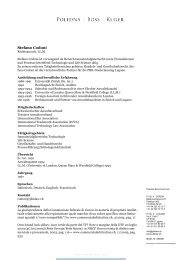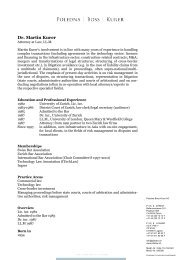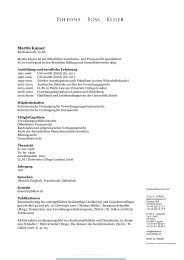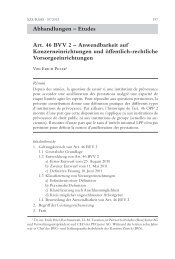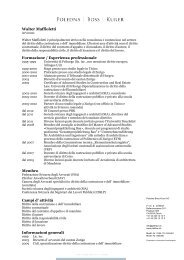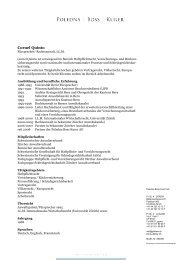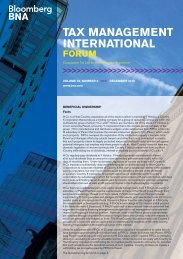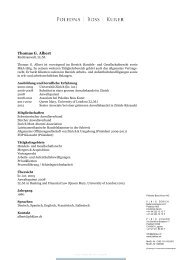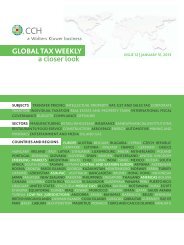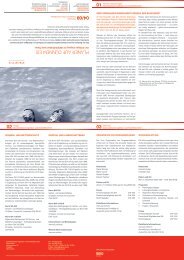721.8 kB - Poledna | Boss | Kurer
721.8 kB - Poledna | Boss | Kurer
721.8 kB - Poledna | Boss | Kurer
- No tags were found...
You also want an ePaper? Increase the reach of your titles
YUMPU automatically turns print PDFs into web optimized ePapers that Google loves.
Th e Government pointed out in particular thatthe US-Swiss agreement ensures that accountsheld by US persons with Swiss financial institutionsare disclosed to the US tax authorities eitherwith the consent of the account holder or throughnormal administrative assistance channels. Consequently,information will not be transferred automaticallyin the absence of consent, and insteadwill be exchanged only on the basis of the administrativeassistance clause in the two countries'double taxation agreement.As the United States will phase in FATCA fromJanuary 1, 2014, Swiss financial institutions will beforced to implement FATCA from this date, irrespectiveof an agreement between Switzerland andthe United States, if they do not want to be excludedfrom the US capital market. The agreed simplificationswill not apply if there is no agreement, theGovernment clarified.Th e Swiss Private Bankers Association (SPBA)has highlighted its objections to certain aspectsof the Swiss Federal Council's bill implementingthe revised Foreign Account Tax Compliance Act(FATCA) recommendations, notably the definitionof a punishable tax crime as a predicate tomoney laundering.While supporting in principle a policy of tax conformity,as well as plans to implement FATCA, theinternational standard in the fight against moneylaundering, the SPBA nevertheless warns that Switzerlandmust not profit from this legislative revisionto introduce, "by the back door," internal legislativereforms that are simply not required under theUS FATCA legislation.The SPBA opposes plans to extend the concept oftax fraud. Currently, this infraction arises from theuse of false or falsified documentation. The FederalCouncil intends to unnecessarily extend thedefinition to include cases of "artful deception,"the SPBA notes. Given that this concept is "veryvague," applying the measure will pose unsolvablepractical problems for the banks, the association argues,making clear that banks simply do not havethe means with which to detect such indications, inparticular in the case of foreign clients.Furthermore, for Swiss clients, introducing theconcept of "artful deception," which could leadto a prison sentence of three years or more, would"profoundly modify relations between the citizenand the state," the SPBA stresses.Finally, the Federal Council also aims to introducethe term "qualified tax fraud," the SPBA explains,pointing out that this offence constitutes a crime,punishable with a prison sentence of five years, aswell constituting a predicate offence to money laundering.The SPBA laments the fact that the onlyqualifying element currently proposed by the FederalCouncil is the presence of undeclared taxableassets in excess of CHF600,000 (USD624,035).According to the SPBA, it is simply not "appropriate"to base the crime of qualified tax fraud merelyon the taxable base, in view of the fact that this is17



